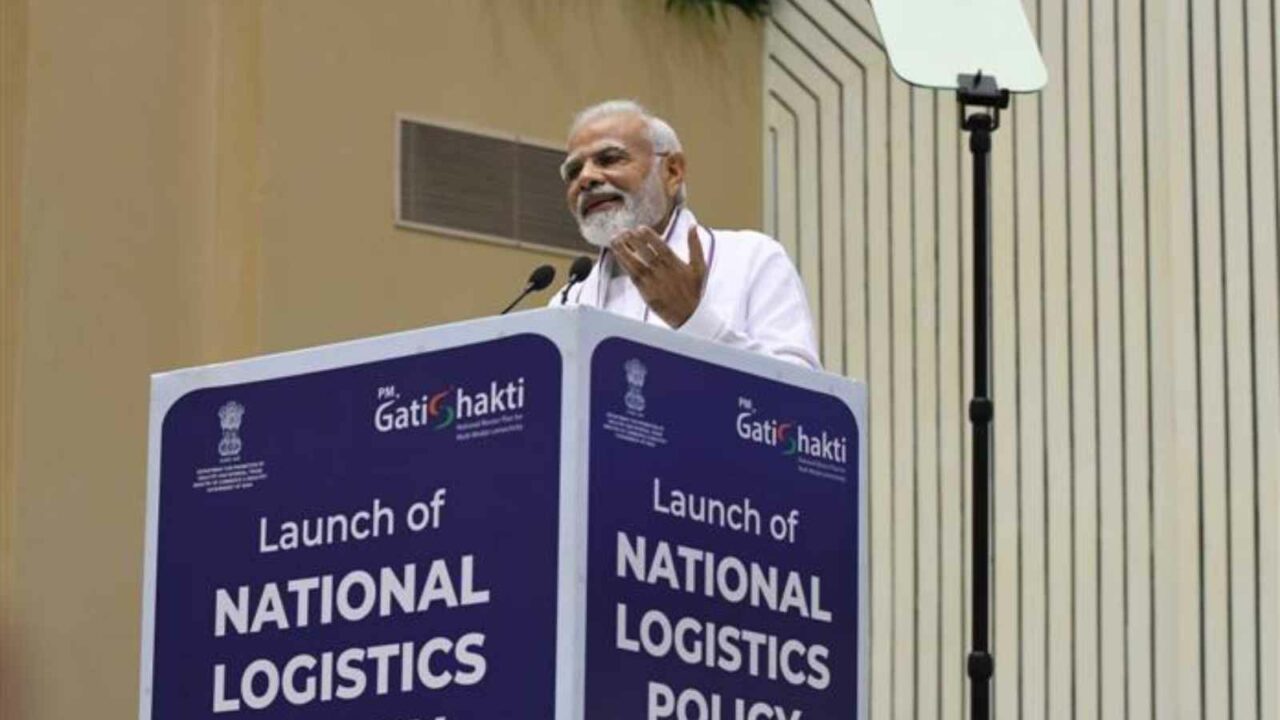The National Logistics Policy, unveiled by Prime Minister Narendra Modi, will further help in improving ease of doing business and significantly reducing transportation cost, according to the Indian industry.
The policy seeks to address challenges facing the transport sector and bring down the logistics cost of businesses from 13-14 per cent of the GDP to a single digit in the coming years.
”Reduced logistics cost and increased logistic efficiencies will energise the economy across sectors in multiple ways and take us many steps closer to emerging as a global manufacturing powerhouse,” CII Director General Chandrajit Banerjee said in a statement.
He said that besides improving ease of doing business, it would help in ensuring speedier and seamless movement of cargo and people across modes of transport — water, air, roads, railways.
National Logistics Policy has potential to usher in ‘ease of moving’: India Inc
Sharing similar views, Assocham said that the policy will substantially reduce transaction costs across the supply chain.
”Enabled by different technologies, the policy focuses on unified measures across different logistics modes, including roads, rail, ports, airports and warehousing, that will give a decisive edge to ease of doing business in India,” the chamber said.
Jagannarayan Padmanabhan, Director and Practice Leader-Transport and Logistics, CRISIL, said that this is a holistic effort to increase the efficiencies of all aspects of the logistics value chain.
Over the past five fiscals, the government has invested close to Rs 15 lakh crore in augmenting hard infrastructure such as roads, rail, ports and airports, he said.
”Its right implementation and widespread adoption will help structurally reduce logistics costs and make a material difference to the growth of India’s manufacturing and services sectors,” Padmanabhan said.
Arindam Guha, Leader & partner, Government & Public Sector, Deloitte, India, said that the policy represents a set of continuing initiatives aimed at making India’s logistics sector more cost competitive, environment friendly, formalised, transparent, with reduced and predictable delivery timelines.
PM Modi to launch National Logistics Policy today
He added that some of the key pillars of the policy include ensuring quality logistics infrastructure, with special emphasis on first- and last-mile connectivity; and use of digital technologies and analytics through initiatives like the Unified Logistics Interface Platform to match demand and supply.
”The policy is expected to facilitate a modal shift in logistics from the current over dependence on roads (over 60 per cent share currently as against 25 per cent globally) to railways (30 per cent currently) and waterways (only 5 per cent currently), thereby reducing average logistics costs as well as carbon footprint,” he added.
It is also expected to lead to a significant improvement in India’s ranking in global studies like the World Bank’s Logistics Performance Index, where India was ranked 47 out of 160 countries in 2018, Guha said.
















